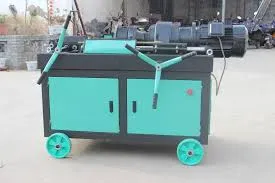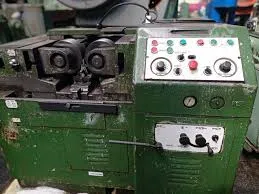
-
 Afrikaans
Afrikaans -
 Albanian
Albanian -
 Amharic
Amharic -
 Arabic
Arabic -
 Armenian
Armenian -
 Azerbaijani
Azerbaijani -
 Basque
Basque -
 Belarusian
Belarusian -
 Bengali
Bengali -
 Bosnian
Bosnian -
 Bulgarian
Bulgarian -
 Catalan
Catalan -
 Cebuano
Cebuano -
 Corsican
Corsican -
 Croatian
Croatian -
 Czech
Czech -
 Danish
Danish -
 Dutch
Dutch -
 English
English -
 Esperanto
Esperanto -
 Estonian
Estonian -
 Finnish
Finnish -
 French
French -
 Frisian
Frisian -
 Galician
Galician -
 Georgian
Georgian -
 German
German -
 Greek
Greek -
 Gujarati
Gujarati -
 Haitian Creole
Haitian Creole -
 hausa
hausa -
 hawaiian
hawaiian -
 Hebrew
Hebrew -
 Hindi
Hindi -
 Miao
Miao -
 Hungarian
Hungarian -
 Icelandic
Icelandic -
 igbo
igbo -
 Indonesian
Indonesian -
 irish
irish -
 Italian
Italian -
 Japanese
Japanese -
 Javanese
Javanese -
 Kannada
Kannada -
 kazakh
kazakh -
 Khmer
Khmer -
 Rwandese
Rwandese -
 Korean
Korean -
 Kurdish
Kurdish -
 Kyrgyz
Kyrgyz -
 Lao
Lao -
 Latin
Latin -
 Latvian
Latvian -
 Lithuanian
Lithuanian -
 Luxembourgish
Luxembourgish -
 Macedonian
Macedonian -
 Malgashi
Malgashi -
 Malay
Malay -
 Malayalam
Malayalam -
 Maltese
Maltese -
 Maori
Maori -
 Marathi
Marathi -
 Mongolian
Mongolian -
 Myanmar
Myanmar -
 Nepali
Nepali -
 Norwegian
Norwegian -
 Norwegian
Norwegian -
 Occitan
Occitan -
 Pashto
Pashto -
 Persian
Persian -
 Polish
Polish -
 Portuguese
Portuguese -
 Punjabi
Punjabi -
 Romanian
Romanian -
 Russian
Russian -
 Samoan
Samoan -
 Scottish Gaelic
Scottish Gaelic -
 Serbian
Serbian -
 Sesotho
Sesotho -
 Shona
Shona -
 Sindhi
Sindhi -
 Sinhala
Sinhala -
 Slovak
Slovak -
 Slovenian
Slovenian -
 Somali
Somali -
 Spanish
Spanish -
 Sundanese
Sundanese -
 Swahili
Swahili -
 Swedish
Swedish -
 Tagalog
Tagalog -
 Tajik
Tajik -
 Tamil
Tamil -
 Tatar
Tatar -
 Telugu
Telugu -
 Thai
Thai -
 Turkish
Turkish -
 Turkmen
Turkmen -
 Ukrainian
Ukrainian -
 Urdu
Urdu -
 Uighur
Uighur -
 Uzbek
Uzbek -
 Vietnamese
Vietnamese -
 Welsh
Welsh -
 Bantu
Bantu -
 Yiddish
Yiddish -
 Yoruba
Yoruba -
 Zulu
Zulu
Jan . 09, 2025 11:20
Back to list
Roller Threading Machine Ultimate Guide for Experts
Roller threading machines have revolutionized the manufacturing industry with their precision and efficiency, catering to industries that demand high-quality threading solutions. With years of industry experience, it's clear these machines are vital for producing strong, durable threads that meet stringent industrial standards.
Investing in a roller threading machine translates into significant cost savings over time. These machines reduce waste of raw materials, lower operational costs through reduced tool wear, and decrease the need for secondary threading operations. Notably, businesses emphasize the importance of training operators to fully leverage a machine’s capabilities, enhancing the overall return on investment. From a practical experience perspective, feedback from industry professionals highlights a few best practices. It is recommended to regularly calibrate machines to maintain threading accuracy and perform routine checks to ensure the alignment of rollers. Choosing the right lubricant tailored to the material being threaded can also optimize the process, reducing friction and enhancing the finish of the threads. In conclusion, roller threading machines are indispensable in the modern manufacturing landscape, offering unparalleled expertise in threading technology and providing reliable, authoritative results that businesses can trust. Their ability to deliver high-quality, cost-effective threading solutions makes them an essential investment for companies aiming to maintain a competitive edge in their industry. Keeping this in mind, businesses are encouraged to assess their threading needs and consider how investing in such technology can benefit their production processes both now and in the future.


Investing in a roller threading machine translates into significant cost savings over time. These machines reduce waste of raw materials, lower operational costs through reduced tool wear, and decrease the need for secondary threading operations. Notably, businesses emphasize the importance of training operators to fully leverage a machine’s capabilities, enhancing the overall return on investment. From a practical experience perspective, feedback from industry professionals highlights a few best practices. It is recommended to regularly calibrate machines to maintain threading accuracy and perform routine checks to ensure the alignment of rollers. Choosing the right lubricant tailored to the material being threaded can also optimize the process, reducing friction and enhancing the finish of the threads. In conclusion, roller threading machines are indispensable in the modern manufacturing landscape, offering unparalleled expertise in threading technology and providing reliable, authoritative results that businesses can trust. Their ability to deliver high-quality, cost-effective threading solutions makes them an essential investment for companies aiming to maintain a competitive edge in their industry. Keeping this in mind, businesses are encouraged to assess their threading needs and consider how investing in such technology can benefit their production processes both now and in the future.
Share:
Latest news
Upgrade Your Production Line With Advanced Threading Solutions
NewsJun.12,2025
Optimize Precision With Advanced Thread Rolling Equipment
NewsJun.12,2025
Maximize Production With A High-Speed Thread Rolling Machine
NewsJun.12,2025
Master Precision Engineering With The Right Roller Threading Machine
NewsJun.12,2025
Find The Right Thread Rolling Tool For Precision Threading
NewsJun.12,2025
Boost Efficiency With Our Thread Rolling Machine
NewsJun.12,2025
